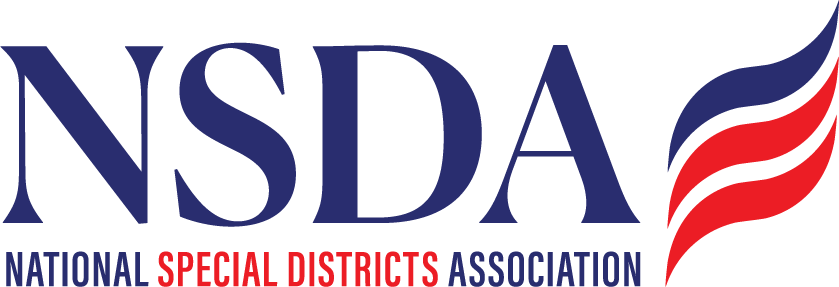NSDC Weekly Updates: September 16, 2024
House and Senate Action
The House and Senate are both in session.
House GOP leaders are expected to bring their six-month stopgap funding plan to the floor again this week. The measure was pulled from floor consideration last week due to a number of Republican holdouts. The proposed Continuing Resolution (CR) would fund the federal government at current levels through March 28, 2025. It also includes a series of provisions that address issues outside of the regular appropriations process, including $10 billion to replenish the Federal Emergency Management Agency’s (FEMA) Disaster Relief Fund, as well as language that would extend the authorization for the National Flood Insurance Program (NFIP). Additionally, the GOP-led measure includes controversial language that would require individuals to provide proof of citizenship in order to vote in federal elections.
The election-related provision – which mirrors a GOP-sponsored bill that passed the House in July – is a nonstarter for Senate Democrats and the Biden administration, who argue that noncitizen voting is already prohibited under federal law. Democratic leaders have also balked at the CR’s six-month timeline, preferring a stopgap funding patch that expires in mid-December. It’s unclear if Speaker Mike Johnson (R-LA) and his whip team will be able to persuade enough Republicans to support the plan. With government funding set to run out on September 30, congressional leaders have just two weeks to pass a CR. Failure to do so would result in a government shutdown.
Later in the week, and with an eye toward the November elections, House Republicans will look to advance more partisan measures, including bills that target what GOP members have labeled “woke” investing principles. The chamber will vote on two bills (H.R. 4790; H.R. 5339) that address the use of environmental, social, and governance factors in shareholder decisions. House Republicans will also try to advance a pair of resolutions (H.J. Res. 133; H.J. Res. 136) targeting what they call the Biden administration’s “electric vehicle mandate.” Finally, the House will consider two measures to address illegal immigration. One bill (H.R. 7909) would make undocumented immigrants who are convicted of, or who admit having committed sex offenses or domestic violence, inadmissible and deportable from the United States. A separate measure (H.R. 5717) would bar federal funding from going to any “sanctuary jurisdiction” for the purposes of addressing the ongoing migrant crisis. The full House schedule can be accessed here.
Across the Capitol, senators will continue their focus on confirming President Biden’s judicial nominees.
Congress Set to Reauthorize Program Benefitting Rural Fire and EMS Services
This week, the House will vote on bipartisan legislation – the Supporting and Improving Rural EMS Needs (SIREN) Reauthorization Act (S. 265) – to reauthorize SIREN Act grants for an additional five years. The program, which is also known as the Rural EMS Training and Equipment Assistance (REMSTEA) grant program, provides grants to rural fire and EMS agencies for training and recruiting staff, conducting certification courses, and purchasing equipment, including medication and medical supplies. S. 265 would expand the program to allow for funds to be used on training on mental health and substance use disorders and care and to acquire overdose reversal drugs and devices. Grants are capped at $200,000 and require a 10 percent non-federal match. It should be noted that the Senate has already approved the measure, so a successful House vote would send the bill to the president’s desk.
Tax Exempt Status of Municipal Bonds
With key individual tax provisions from the Tax Cuts and Jobs Act set to expire at the end of 2025, it’s highly likely that Congress will consider a reform package next year (regardless of who is in the White House). In past years, some lawmakers have targeted the tax-exempt status of municipal bonds as a potential offset or payfor. To push back against some of these threats and to help illustrate the benefit of muni bonds, the Public Finance Network is seeking examples of infrastructure projects that were funded with tax-exempt bonds. The entry form for submissions to the Built by Bonds initiative can be accessed here.
Relevant Hearings and Markups
Senate Banking, Housing and Urban Affairs: On Wednesday afternoon, the committee will meet to discuss the macroeconomic impacts of potential tax reform in 2025. Additional details on the hearing can be found here.
House Appropriations: On Wednesday morning, the panel will hold an oversight hearing with the Inspectors General for the Department of Housing and Urban Development, the U.S. Department of Transportation, and Amtrak. A livestream of the hearing will be available here, beginning at 10am ET.
House Transportation and Infrastructure: On Wednesday morning, the committee will consider 30 bills within the panel’s jurisdiction, including several FEMA reform proposals. One measure – the Making Aid for Local Disasters Equal Now (MALDEN) Act (H.R. 6435) – seeks to improve FEMA’s response to natural disasters in rural communities. It would do so by improving coordination between local emergency managers, state officials, and federal government agencies. Specifically, H.R. 6435 would require FEMA to provide guidance to local emergency managers on developing a recovery team. FEMA would also be required to assist in identifying short and long-term recovery resources. Finally, the bill would require FEMA to work with state emergency management agencies to make disaster case workers available for rural communities in the event that a request for Individual Assistance is made and denied.
The panel will also consider a bill (H.R. 9037) that seeks to improve FEMA’s employee recruitment and retention efforts, develop strategies to train and deploy their workforce in efficient ways, and utilize data to address and fix staffing gaps. A third measure – the Natural Disaster Recovery Program Act (H.R. 1605) – would strengthen the U.S. Department of Housing and Urban Development’s (HUD) disaster recovery program for states, local governments, and tribes by establishing a permanent and predictable funding process.
More details on the markup, including a full list of bills under consideration, can be accessed here.
